For over a decade, Southwest Airlines has been my family's airline of choice. We live just 15 minutes from a major hub and found Southwest's route map convenient for getting to many of the places we travel most often, from Disneyland to Hawaii. We loved the airline's quirky sense of humor and family-friendly vibe, along with all the methods we could use to save money on our travels like the Companion Pass.
This past year brought some major changes to Southwest. Unless you've been living under a rock, you've probably heard about them. An activist investor took a large share in the company and forced the hand of executives to implement significant policy modifications, from ending the airline's longstanding "bags fly free" policy to unveiling assigned seating.
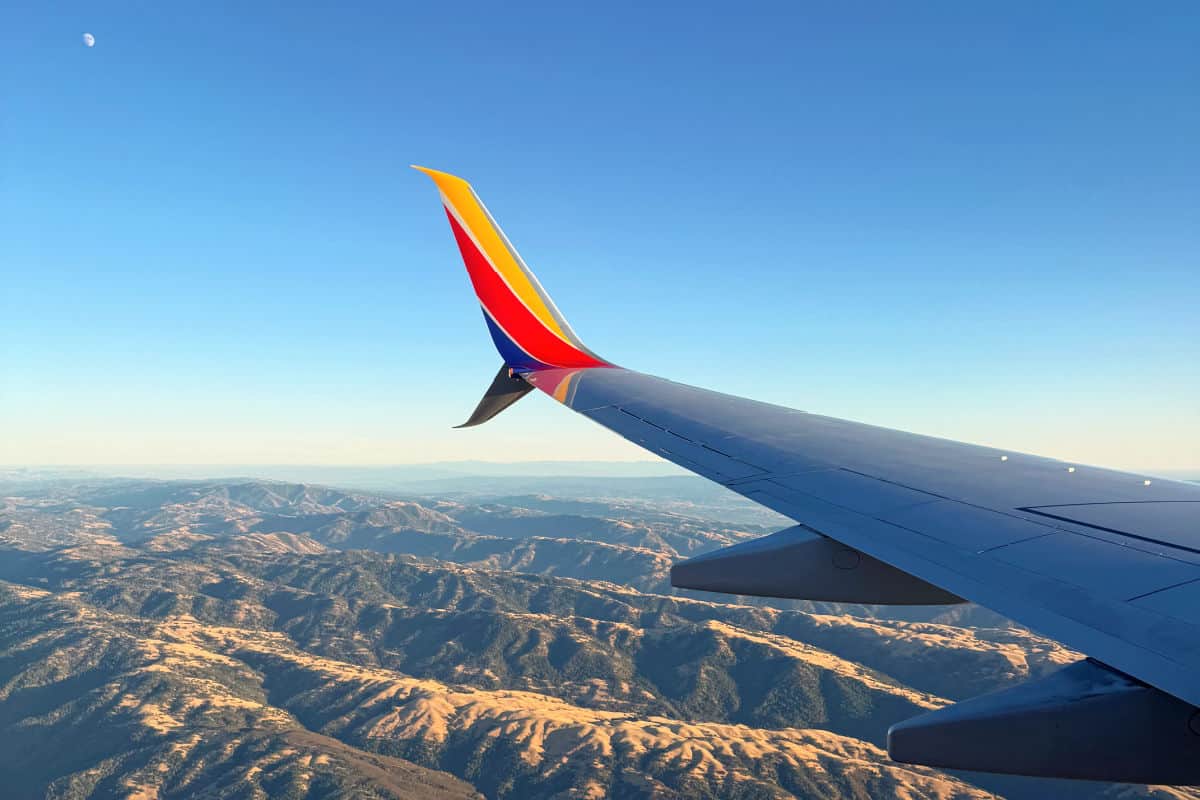
As a Southwest frequent flyer, these changes have forced me to take a hard look at how I fly the airline. Is it still the best airline choice for me? Should I approach how I book and fly flights on Southwest differently? If so, how?
I've concluded that I'll still be flying Southwest plenty, but I'll be making a number of adjustments so my family will still be getting the best value and all the amenities we need. Here's what I'm doing differently and why - and how other Southwest travelers (particularly families) should consider making adjustments too.
Related: Complete guide to flying Southwest with kids
Recap of What's Different
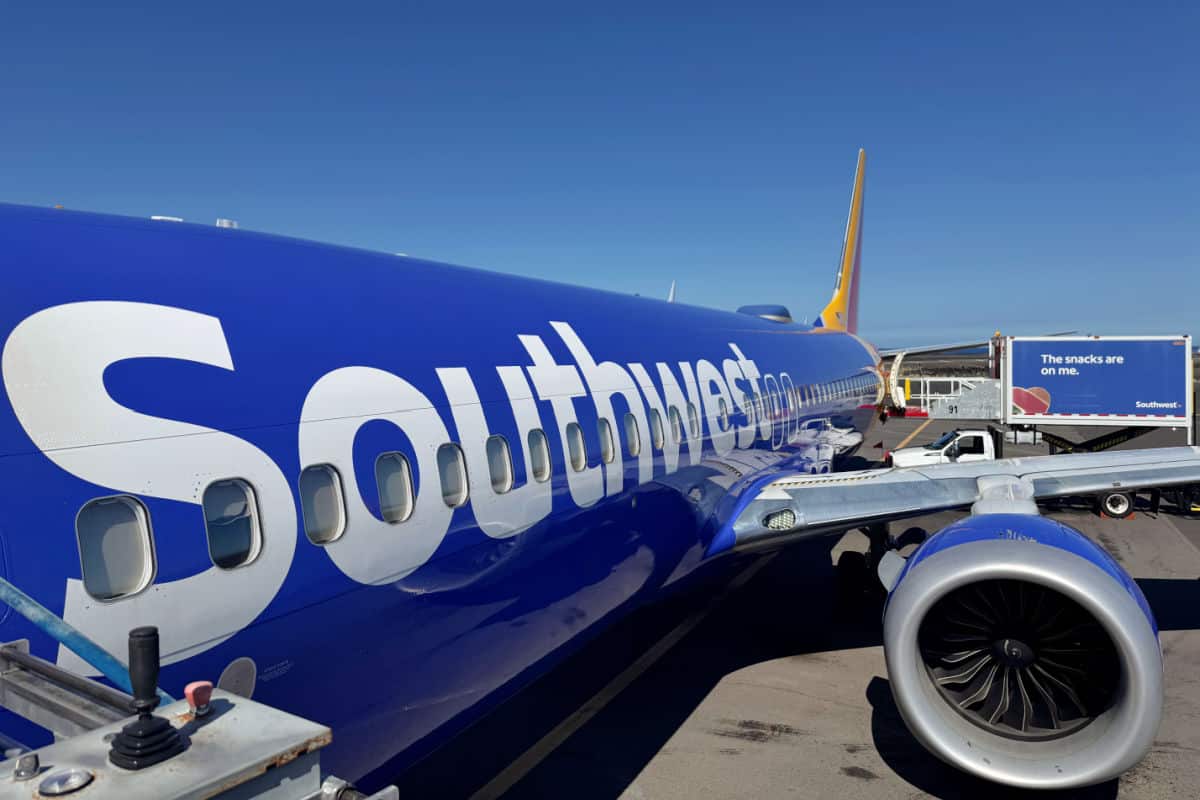
Policy changes
If you need a refresher on everything that's different, here are the major changes that Southwest has rolled out in 2025 and one more coming in early 2026:
- New fare names & rules: From least to most expensive, fares classes are now Basic, Choice, Choice Preferred, and Choice Extra (farewell Wanna Get Away, Business Select, and the like!). These fares come with new restrictions and benefits. (Related: Which new Southwest fare type should you buy?)
- Checked bag fees: Southwest now charges $35 for the first bag and $45 for a second bag. Bag fees for at least one bag (sometimes two) are waived for all credit card holders, A-List & A-List Preferred customers, and for anyone purchasing the most expensive Choice Extra fares. (Related: Comparing checked bag fees on US airlines)
- Seat assignments: No more open boarding and choosing your own seat. Advanced seat assignments can be purchased a la carte or are included in all but the least expensive Basic fare. Advance seat assignments are also complimentary for travelers with status or credit card holders (benefits vary by card type). Seat assignments go into effect for flights on or after January 27, 2026 but have been on sale for several months now.
- Extra legroom seats: The airline has been updating all plane cabins to add extra legroom seats to the front of the plane (reducing its previously-generous standard economy seat pitch by 1 inch to match the standard pitch of airlines like American and United).
- Credit card benefit changes: All 3 personal credit cards (and 2 business cards) got a major benefit overhaul and a fee increase. All cards now include a free checked bag. All cards also include the right to select an assigned seat, but the highest fee personal and business credit card get to select an assigned seat earlier and potentially get access to extra legroom seats for free when available. (See complete details in my Southwest credit card comparison guide.)
- Fare credits now expire: If you have to cancel a fare, credits now expire. On Basic fares, the credit is only good for 6 months from your original date of purchase. Choice fare credits are valid 12 months (Choice Preferred and Choice Extra fares are fully refundable when canceled - no fare credit needed).
- Revamped Rapid Rewards points earning and redeeming: Southwest's Rapid Rewards points flight prices are still roughly tied to the cash price of the fare, but points are worth a little bit less on average with a wider valuation spread than before. The two cheaper new fare classes (Basic and Choice) also earn fewer Rapid Rewards points per dollar spent than before, but the most expensive fare class (Choice Extra) earns more. (See this post for the complete Rapid Rewards devaluation analysis.)
Other changes frequent flyers may have noticed
Those are the official policy changes. But I'm also seeing more subtle changes in how those policies affect what the airline is doing and the fares it is selling. These nuances matter too.
For example, Southwest is releasing its flight schedules much farther in advance (likely so it can compete with other airlines now that Southwest flights are listed on online travel agency booking sites like Expedia). Schedule release days used to be when savvy Southwest customers could lock in a low price. That is no longer the case. Fares are now usually very expensive many months out. Schedule release days are no longer good times to book.
One other small difference I'm seeing: Southwest is being very stingy with its Basic fare inventory - much more than it was with Wanna Get Away fares. For some flights, there are very few if any Basic fares for sale at all, especially many months in advance or during peak and even semi-peak dates. The result is that it's much harder for a price-sensitive passenger to find a good deal without persistence.
Finally, I'm also seeing record high flight prices on a lot of routes. This is particularly noticeable for travel on Fridays and Sundays. That is making it much harder to find a good deal for a quick weekend getaway.
It's also the case around special events. Just look at the fares I screenshotted a few weeks ago for travel to and from major San Francisco Bay Area airports around the time of the Super Bowl. Shocking to see a route like SLC to OAK priced over $600 one way when that trip is usually $100-200.
All the Ways I'm Changing My Southwest Strategy
So how am I responding to all of these changes, both official and unofficial?
Keeping a Southwest cobranded credit card
Although it may be tempting to cancel your Southwest credit card in protest of the airline's overall changes or the increased fees on the cards themselves, I haven't and I won't. The benefits - especially for families who fly the airline even just occasionally - are simply too valuable.
The main benefits to holding a Southwest credit card are now 1) free checked bags and 2) some form of seat selection. More specifically, if you hold any of the 5 Southwest credit cards, you get a free first checked bag. And so do up 8 additional passengers booked on your same reservation.
The seat selection benefits are a little less straightforward because they depend on card type. But all the cards come with some sort of a seat benefit for both the cardholder and up to 8 additional people booking on the same reservation. If you have the personal or business card with the highest annual fee (Priority or Performance Business), you get advance seat selection in standard or preferred seats when you are booking a flight. Other credit card holders can select their seats 48 hours before a flight.
Doing the math, it simply makes sense for someone in my family to hold a Southwest credit card, and it probably does for most family travelers who fly Southwest at least once a year too. Just a couple of checked bag fees or one roundtrip where your family wants to be sure you can sit together and the cards pay for themselves. A few examples of the math:
- A family checking just two bags on a roundtrip itinerary ($35 x 2 x 2 = $140) more than pays for the least expensive Southwest personal credit card (Plus) which has a $99 annual fee.
- A family of 4 pre-booking seats together on a roundtrip ($30 x 4 x 2 = $240) more than pays for the most expensive Southwest personal credit card (Priority) which has a $229 annual fee. (Where did I get $30 for this calculation? That's the minimum upcharge to move from a Basic to a Choice fare which would include seat selections at booking.)
My family uses the checked bag benefit on occasion on longer trips and also prefers to sit together (or at least avoid middle seats when one of us is traveling solo). So keeping a Southwest card - and probably even the priciest one - is pretty much a no-brainer.
But... re-evaluating our Southwest credit card portfolio on a household basis
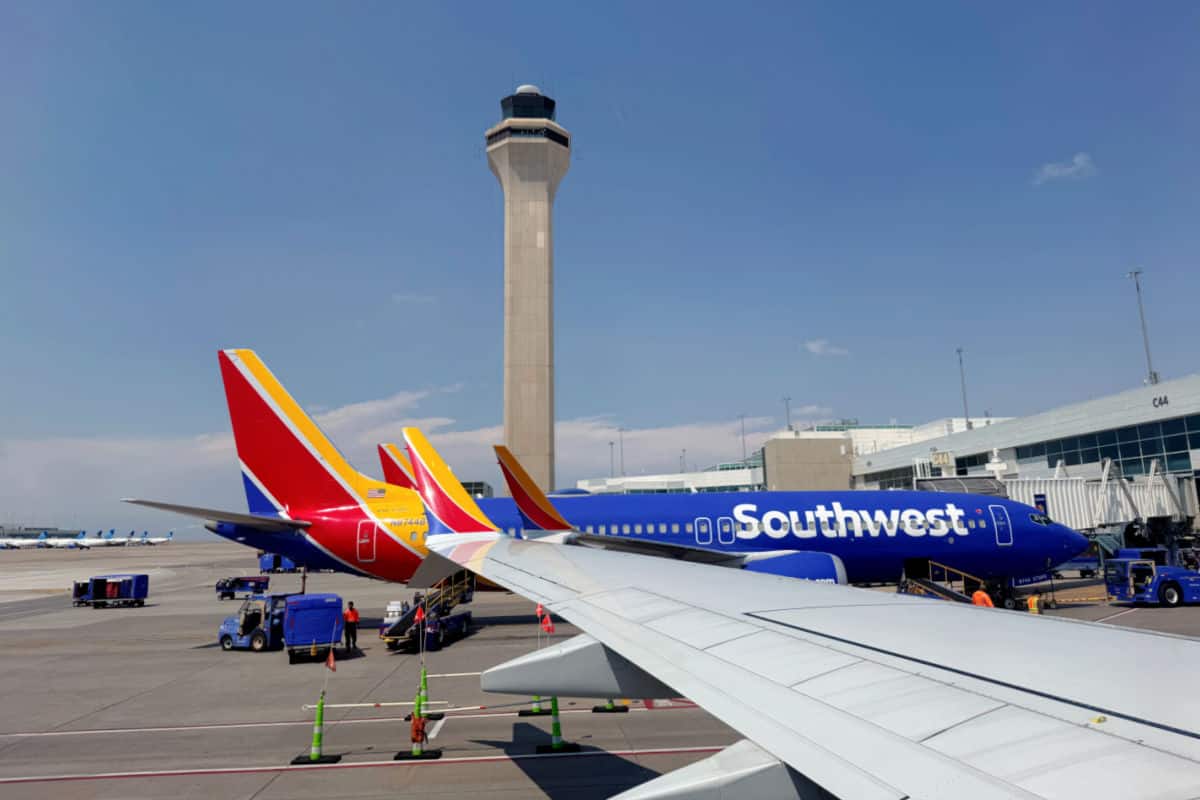
Although we will keep a Southwest credit card in our household, we may not keep the Southwest cards we currently have. I'm reevaluating our portfolio entirely to make sure that I'm not paying too much at these increased prices. You should too.
Right now, I have the most expensive personal card (Priority) as well as the most expensive business card (Performance Business). The checked bag and seating perks on those cards are identical. I definitely do not need to keep both as the other incidental benefits of the cards don't add up to justify the double cost. So I'll cancel one before the fee comes due.
But I may not need a Southwest card at all, and we probably will get one for my husband instead. Why? I also have Southwest A-List status thanks to a perk from my Chase Sapphire Reserve card. That status gives me access to the same checked bag benefit and the seat selection of the Priority and Performance Business credit cards.
If my husband gets a Southwest card, he'll be able to have seating and checked bag perks when he travels solo without me (and he'll snag a new signup bonus too). And if he needs to take a trip with one kid while I take a trip with another (which happened last month), both of us can have the bag and seating benefits at the same time.
While I realize the vast majority of you reading this article won't have someone in the family with A-List, the lesson to take away here is that other family travelers should consider carefully who is the credit card holder in the family.
If one parent sometimes travels solo on the airline in addition to traveling with the family, it may be smarter to designate them as the Southwest credit card holder. If your family mixes and matches and travels Southwest a lot, it could even make sense for two family members to have a card. (Remember, authorized users on the card don't get the same perks. Only primary cardholders do.)
Booking everything possible with Rapid Rewards points
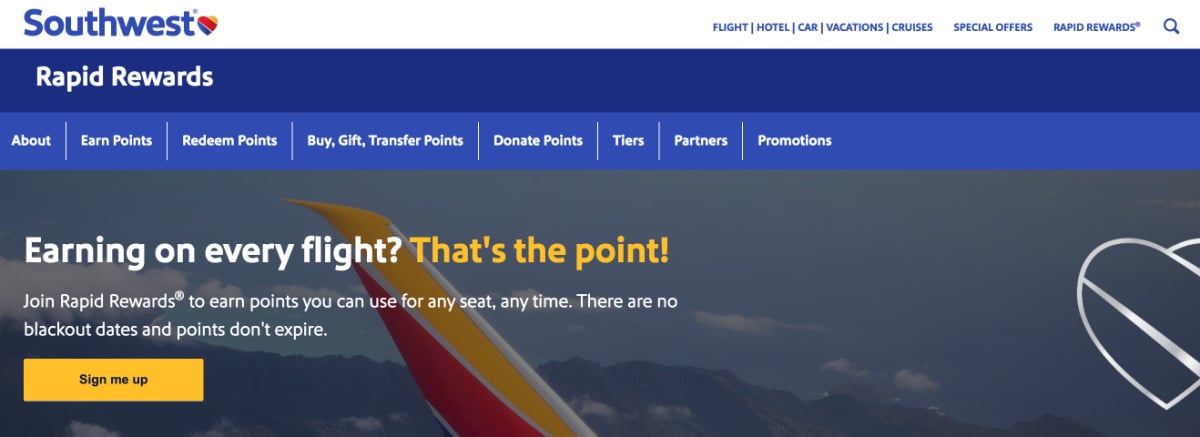
Even before the 2025 changes, I booked a lot of my travel on Southwest with Rapid Rewards points. We mostly obtained these points from credit card signup bonuses, but I occasionally topped them up using points transfers from my Chase Sapphire Reserve card.
Once Southwest added expiration dates to its fare credits this year, I doubled down on booking exclusively with points. Why? Because when you book with points and need to change or cancel, the points simply are redeposited in your account instantaneously where they can be reused again at any time. If you had booked with cash, however, you would only get a credit with a 6 or 12 month expiration date depending on fare type. In some instances, you might not be able to use the fare credit in time.
Points bookings are the last supremely flexible way to book Southwest flights in a world of expiring fare credits. Plus, making a booking with points means I can always book the cheapest Basic fare because I don't care about the difference in a 6 month or a 12 month fare credit (remember: my credit card benefits get me access to seating perks, so I don't need to buy up to a Choice fare for that).
So it's worth it to focus on acquiring Southwest points and plan to use them as much as possible - especially when it comes to a trip you might cancel or if you are booking very far in advance. (In fact, I value the flexibility of points bookings so highly that I recently took advantage of a transfer bonus from Chase Ultimate Rewards to move a large chunk of points to Southwest.)
Canceling and rebooking instead of changing
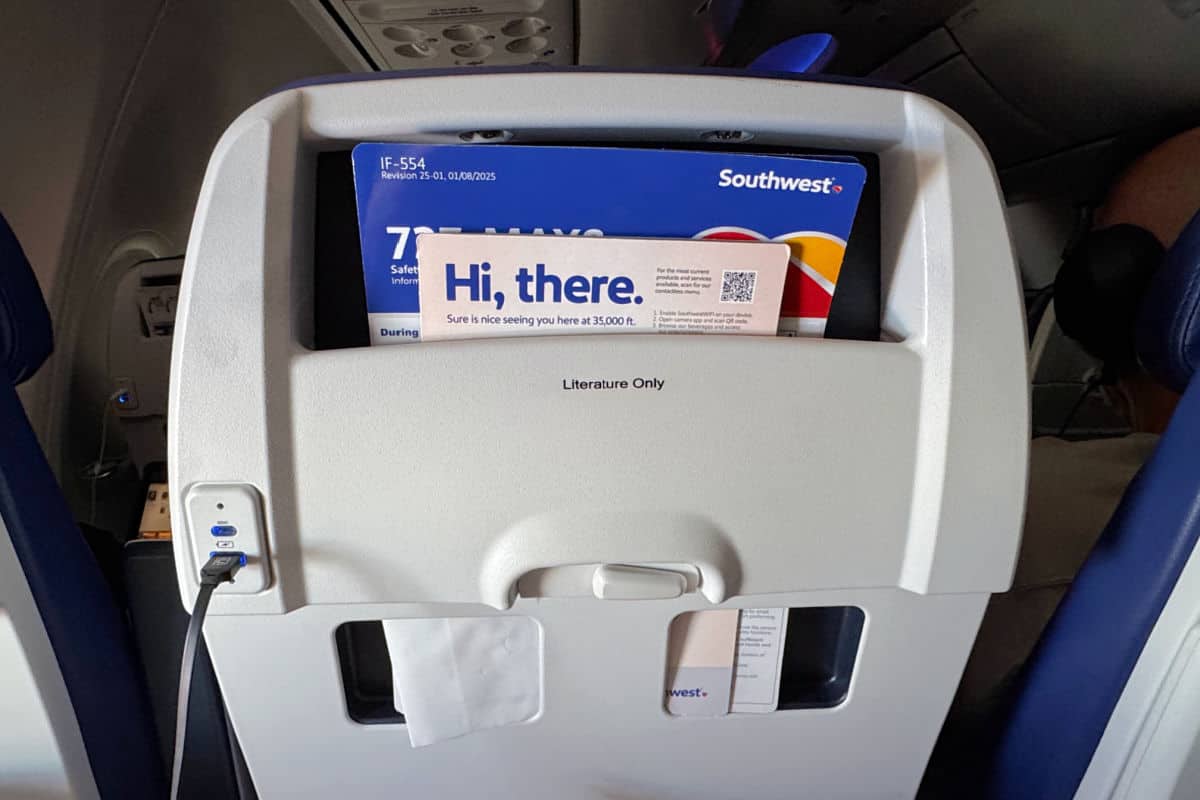
One of my favorite things about Southwest for many years was that you can take advantage of a price drop. If you booked a flight and it late dropped in price, you could re-book at the lower price. The fare difference would either be given to you as a credit if you booked with cash or with points back in your account if you booked with Rapid Rewards.
This general policy isn't changing, but there are now a number of additional limitations you need to consider that affect how you book and change or rebook. First, remember that most credits you get back on cash bookings now have expiration dates (6 or 12 months from the time of booking depending on fare type). Second, Southwest has now made Basic fares non-changeable. However, they still can be canceled - and that's the fine print that matters most.
When I book Basic fares with my points, I can't change them if the price drops. But I can cancel a Basic fare to get points back to my account which I then use immediately to rebook the flight anew at a lower price. It's not that hard, but it is one extra step that takes a couple of extra clicks and minutes.
If you are someone who is booking Choice fares and higher, this is a hassle you won't have to worry with because those fares are changeable. Simply use the process you used before to change into the lower fare and bank the fare credit or points. But for those flyers looking for deeper discounts buying Basic fares, prepare to make this rebooking switch.
Booking exclusively one-way flights
Unlike other airlines who sometimes give you a lower price for booking a roundtrip itinerary vs. two one-ways, Southwest's flight prices are the same no matter which way you book them. So which way you book shouldn't matter. But it can.
If you are booking Basic fares like I am, you absolutely positively need to be booking them only as one-way flights. The reason is again due to the fact that Basic fares can be canceled but not changed. If you book a roundtrip itinerary with Basic fares and one flight drops in price while the other goes up, you'll have to cancel and rebook the entire trip at the new prices. That means you might have to pay more on one flight to lock in a lower fare on the other one.
If you book that trip initially as two one-ways, however, the flights become independent of each other. If one goes down and one goes up in price, you can cancel and rebook the lower price one while not touching the other one. This strategy maximizes your ability to take advantage of Southwest's fare drop rules.
Doing more points math and keeping a tracking spreadsheet
I'm going to lose a few of you here even uttering the word "math" but it's a necessary risk I'm willing to take. The reality is that in 2025 and beyond, doing a bit of math and taking the time to get little more organized could save you hundreds of dollars in your Southwest travels.
Because Southwest points are worth a more variable amount, you'll get more value from them if you actually do a quick calculation before booking to make sure a points redemption is a decent deal.
Here are two examples of Basic fare flight prices in both cash and points that I saw this week:
- OAK to BUR in spring 2026: $105 total fare OR 5500 points + $5.60 federal fee -- a value of 1.81 cents per point
- LAX to HNL during peak holiday 2025: $322 or 28,000 points + $5.60 federal fee -- a value of only 1.13 cents per point
If you have limited points, you'll stretch them a lot farther booking a flight that gives you closer to 2 cents per point than 1 cent per point in value. Generally speaking, I'm very happy when I can beat 1.5 cents per point, but I'm also content booking at 1.2 or 1.3 cents per point because of the extra flexibility points bookings give me to cancel.
I also now keep a very simple tracking spreadsheet of the cash price and points prices of every trip I book. That allows me to keep tabs on my redemption values over time, and also lets me easily cross-reference and confirm drops in price so I can cancel and rebook a trip when the price goes down (I used to use Southwest's site to check to see if prices had dropped by starting to modify an existing itinerary, but it's not as easy anymore with Basic fares because you can't modify them).
To make this easier for more of you, I put together a basic template that you can borrow and use for yourself - with the cost per point calculator built in! Subscribe below to get a downloadable copy in your inbox (be sure to confirm your subscription when you receive the email and the spreadsheet will be emailed to you within a couple of minutes).
Being careful about splitting family members up on separate reservations

In the past, there have been a number of instances where I'd book different members of my family on separate reservations. I'd do this occasionally when Southwest only had 1 or 2 fares at a cheaper price (if you book all 4 together, they all price at the higher price, so you pay more overall). I'd also do this sometimes if I was booking some family members with points and some family members with cash because we didn't have enough points for everyone.
But I'm doing this only with much more caution now. Why? Because many of the benefits we now need to use from my being a credit card holder (free bags, access to assigned seating earlier) only extend to my family members if they are booked on the same reservation as the card holder. If I split us all up on multiple bookings, only some of us will get free bags and it will be a lot harder to select seats together.
(Note that companions flying on a Companion Pass technically get a separate flight reservation number, but benefits like seats and bags DO extend to them, so don't worry about that unique case.)
I could see some circumstances where we are carrying on (or only checking a couple of bags as a family) and where I might be ok with being split up to take advantage of lower fares. But I will more carefully think through the parameters of each trip as I book to make sure that risk is worth the savings.
If you are a family with very young kids, I wouldn't recommend this gamble though. Southwest won't guarantee that young kids will be seated next to parents and they won't guarantee the whole family can sit together. They'll try to get kids with at least one adult, but the policy leaves room for problems to arise (see the screenshot of Southwest's rules below, with the most important point highlighted). If you want certainty, you need the seating benefit.
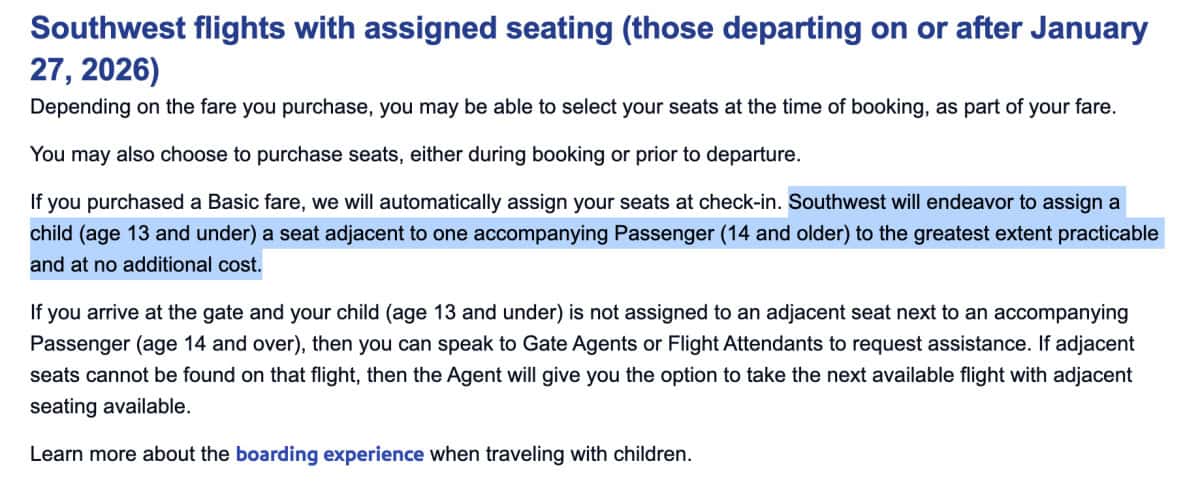
Checking Southwest sales often
Because Southwest pricing practices have changed a lot, I'm finding I need to work a little harder to figure out when to find the best deals and lock them in. This is true whether I'm looking at cash or points fares. I can no longer rely on schedule release dates, and I'm often not finding Basic fare inventory when I search for flights too early on many routes.
But on the flip side, Southwest does seem to be holding more fares sales than ever before, usually for flights 1 to 4 months later. Fare sales tend to be announced on Tuesdays, so I'm checking and re-checking routes each and every time a fare sale email lands in my inbox to find the sweet spots and bank price drops on flights I've already booked.
The result is that I've been able to snag some crazy good deals this fall (4500 Rapid Reward points - less than $70 at current most generous valuations - to fly cross country from Washington, DC to Oakland, CA!)
Shopping around with other airlines
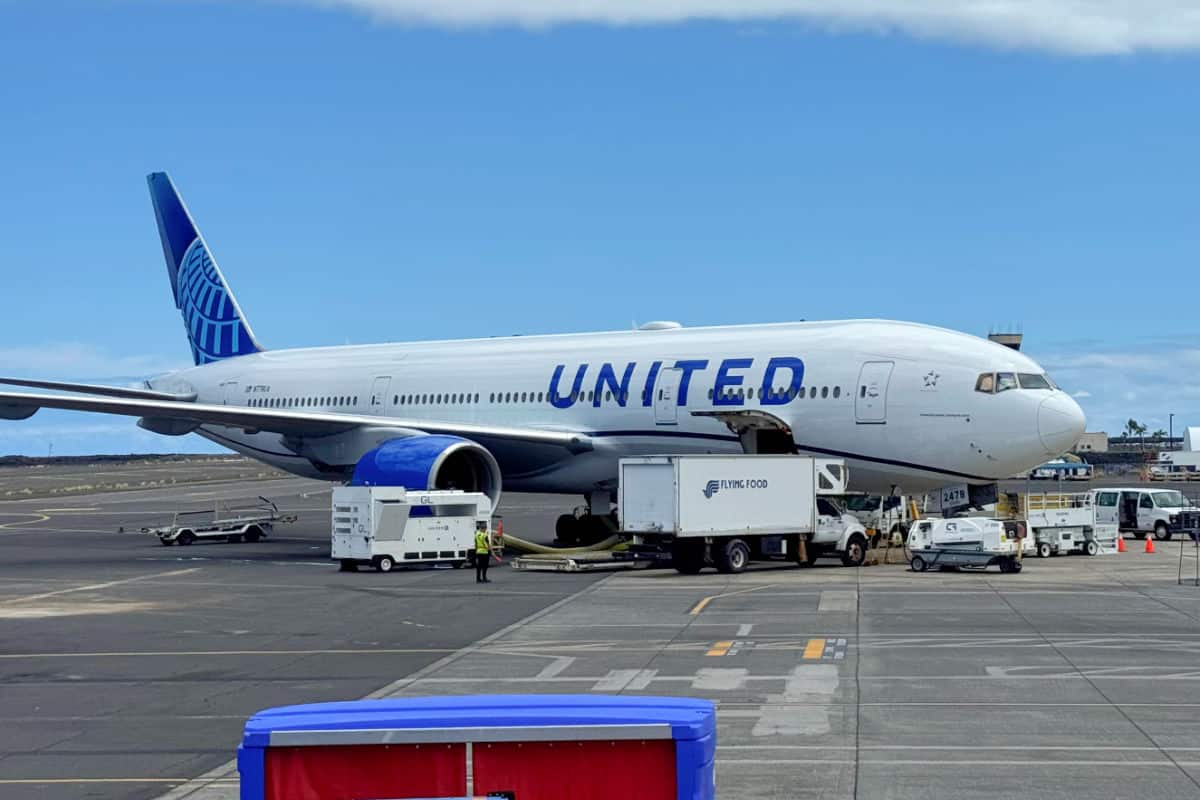
Finally, I'll be the first to admit my love affair with Southwest made me a bit lazy in recent years. I'd often go straight to Southwest.com and not even give a passing glance at other airlines, especially for routes I fly regularly.
The airline's recalibration has caused me to shop around a little more, and that's a kick in the pants I probably needed. Some of the other airlines I had written off years ago have made some changes for the better more recently. I ought to be using them a bit more when schedules work or I can save money, etc.
But I also shouldn't cut off my nose to spite my face, choosing other carriers just to punish Southwest. I see a lot of angry Southwest customers who want to make a point, and I get that. But those other airlines don't really value your loyalty as a customer either. You should book the specific flights that work for the trip you are taking - considering total price, schedule, airports options, amenities you need, etc. Forget the airline branding.
On balance, I think I'll still be flying Southwest at least 90% as often as I was before, but I'll perhaps be taking one or two more flights a year on carriers like American or United. Already this holiday season, I decided to fly American to see my family in Charlotte, North Carolina because American's non-stops out of SFO were cheaper and quicker than connecting Southwest itineraries out of OAK. But for flights to Disneyland, Southwest is still getting all of my business.
Final Thoughts
These changes may seem like a lot - and they are. They are totally recalibrating how I approach my travel on Southwest. My brain is tired thinking through all the iterations and new steps I've had to learn.
But once you think through how your family travels specifically (how often you fly Southwest, whether you tend to check bags or really need to assure seat assignments together, etc.), you'll find a general formula that will work for you. And chances are, you'll find some sweet spots and some deals that make the airline still worth flying.
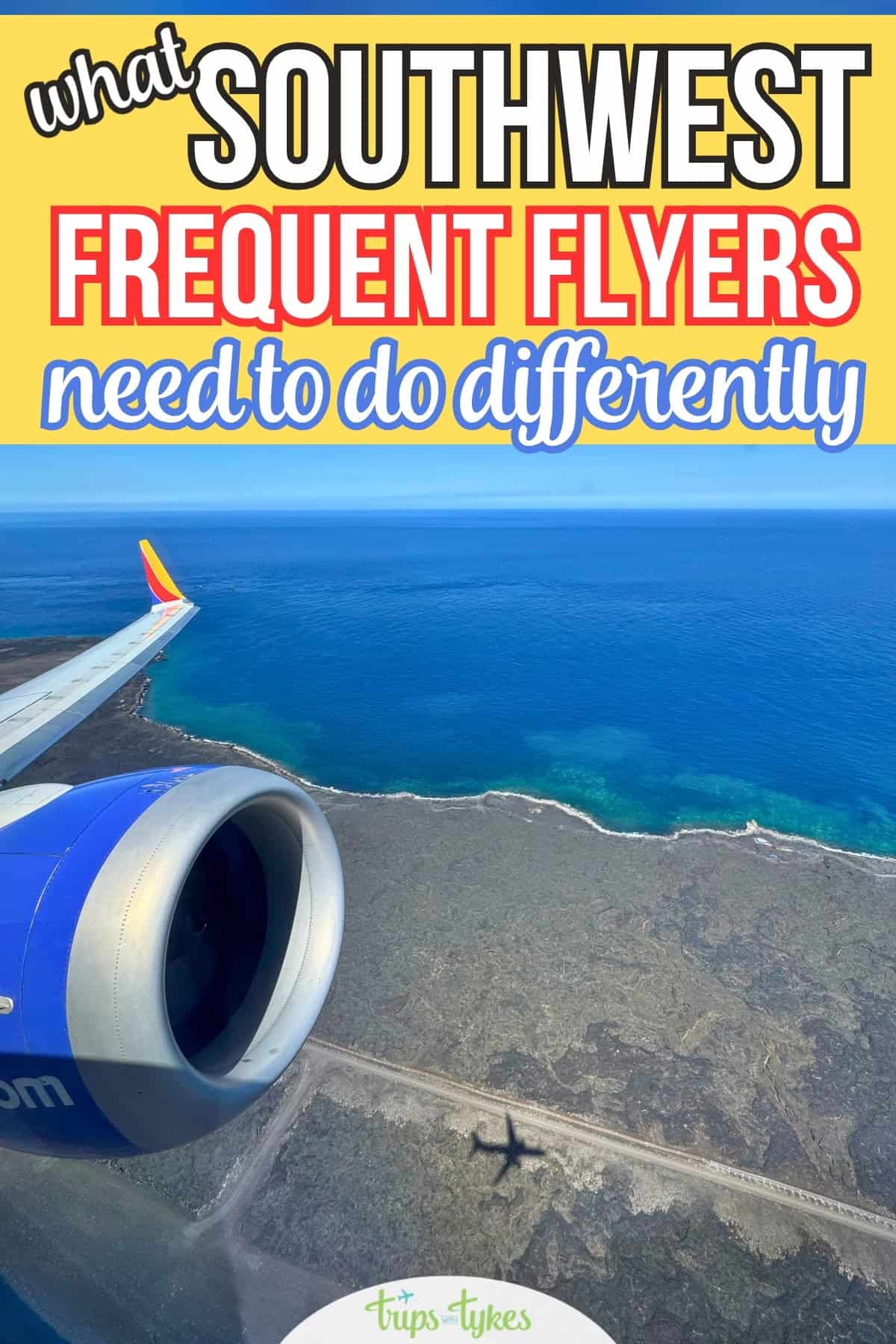

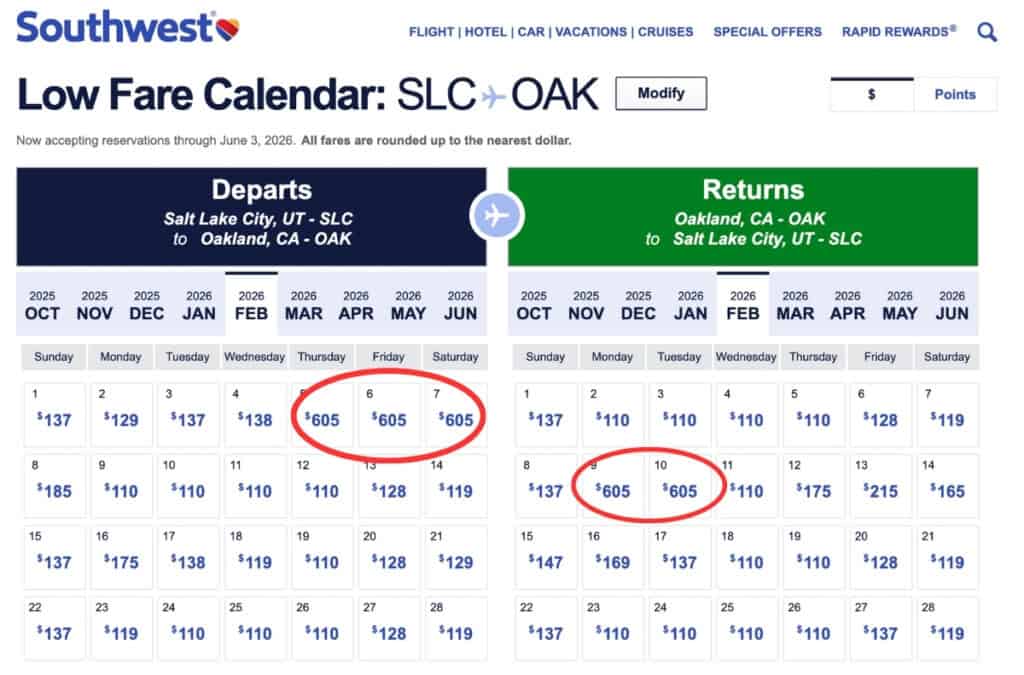
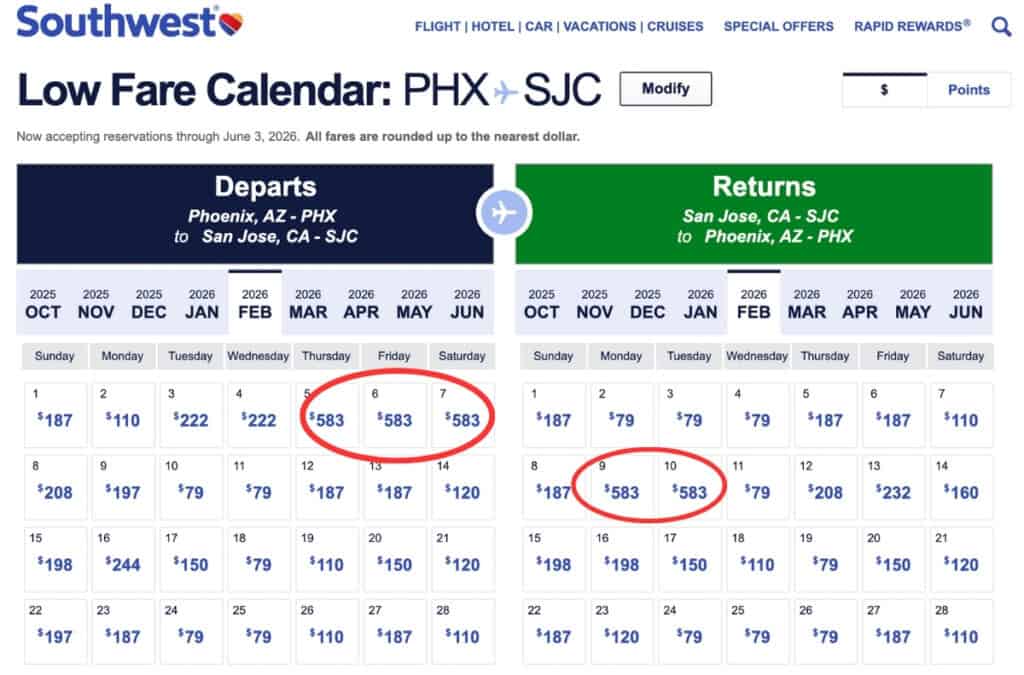
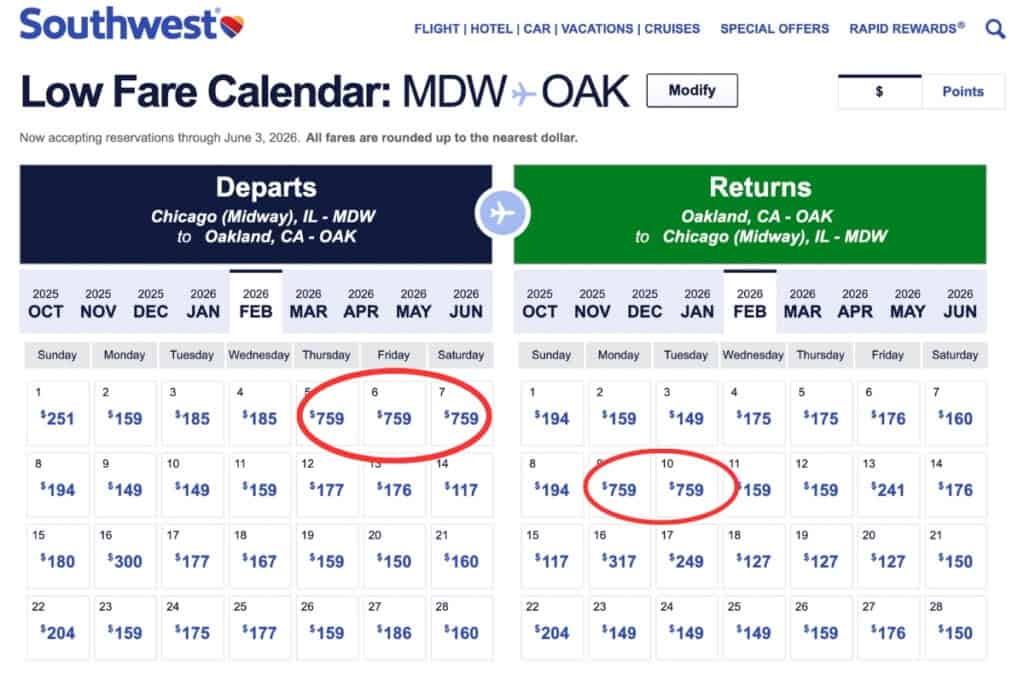
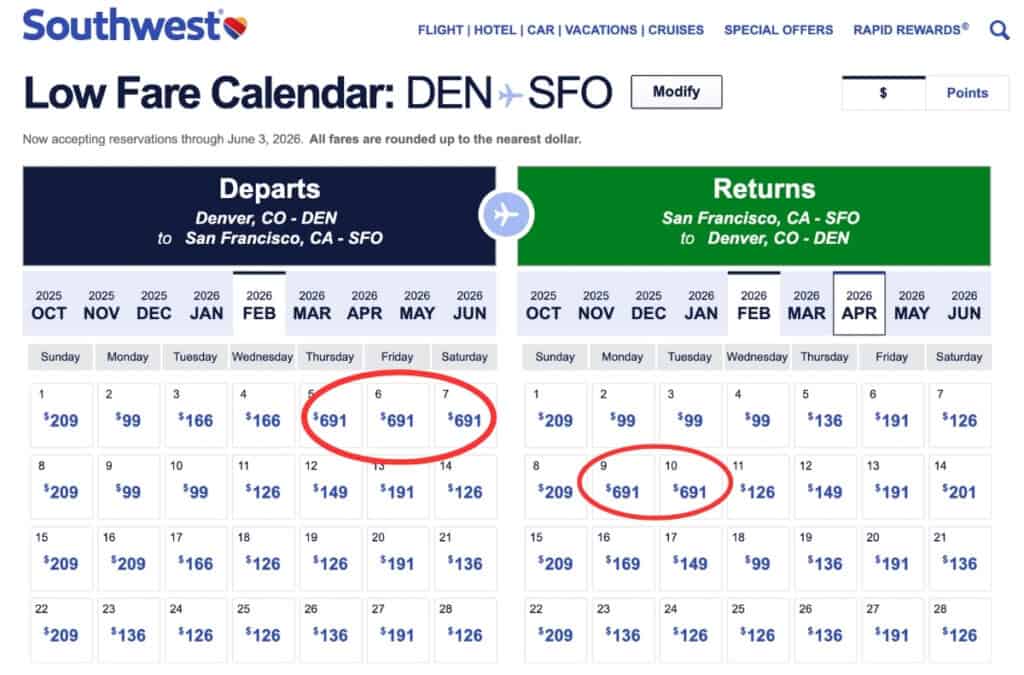
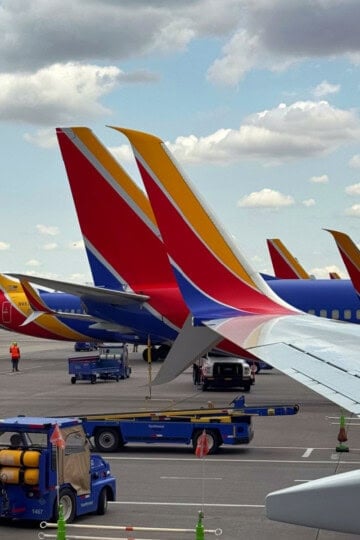
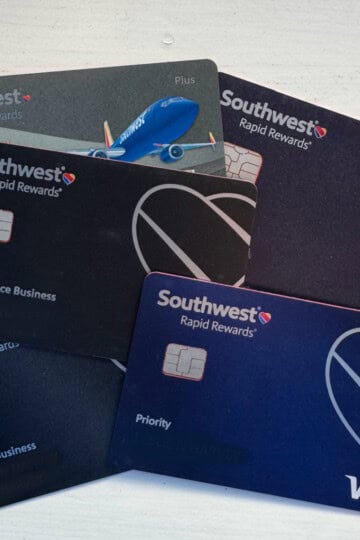


Leave a Reply